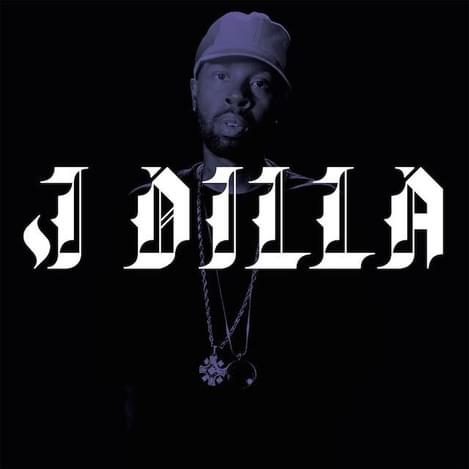J Dilla's diary entries from the vocal booth offer a glimpse of what might have been
"The Diary"

Hip hop is not a genre known for a sensitive approach to deceased artists; Tupac’s hologram at Coachella a couple of years ago hardly screamed dignity, but then again, his back catalogue - limited only on the grounds of the tight timeframe he actually had on this planet - has been raked over and bastardised so many times that having him appear on stage via laser projector only really seemed like the next logical step in a series of moves that racked up cash and stirred deep discomfort with genuine fans all at the same time.
We lost Dilla in 2006, in the sort of abrupt and random fashion that more or less defines the word cruelty. Cut down by a rare blood disease, probably the finest producer of his generation left a plethora of unfinished material behind. Some of it was finished by other artists and released posthumously - The Shining, generally considered his third album proper, and Champion Sound, a collaborative effort with Madlib, being a couple of cases in point. A slew of other instrumentals have emerged - sometimes in a trickle, sometimes in a flood - in the decade since his death. As of last year, T3 of Slum Village, of whom Dilla was a founding member, claimed there were still at least 150 unreleased beats floating around.
Given the profound effect on modern hip hop of his second LP - the instrumental Donuts, which was released three days before he passed - there is probably a sensible argument to suggest that from the point of view of his legacy, it might have been better to let that now-classic stand as his swansong and with his unfinished projects left on the shelf. The truth, though, is that losing him at such a young age, coupled with his seismic impact on the genre both before and after his death, means that these new releases feel more like curios than cash-ins, and for a while, The Diary has been top of the wish list for hip hop heads.
This was, as legend would have it, the last record Dilla intended to put out, which isn’t strictly true; instead, it was the release that was supposed to launch him as an emcee in his own right, after he inked a two-album deal with MCA. He chose largely to draft in external producers rather than rap over his own beats - a young buck by the name of Kanye West was reportedly among those tapped - but after MCA decided it wasn’t what they’d been hoping for, he was dropped, and the record never saw the light of day.
Until now. After a few years in release-schedule hell, The Diary - newly retitled, as it would’ve been Pay Jay had it dropped while Dilla was alive - arrives in a hip hop climate still in thrall to the man. The peculiar thing about the album, then, is that he made that decision to largely rely on others for beats; just four tracks here were self-produced. Whether he was just trying to make a statement that he could make it as a rapper without needing to lean on his own prodigious skills behind the board are unclear, but it makes for a beguiling listen. At points, you wonder about the wisdom of the concept; “Fight Club” falls flat, with a rudimentary beat from Waajeed compounded by a weak non-hook - “up in the club” - and on “Drive Me Wild”, clumsily pasted-together samples from Karriem Riggins do little to offset a lifeless drawl of a vocal.
The good outweighs the bad, though, and there’s plenty of evidence to suggest Dilla made some shrewd calls in terms of who he reached out to. Both “The Shining Pt. 1 (Diamonds)” and “The Shining Pt. 2 (Ice)” are highlights. The former blends sunny, soulful backing from Nottz with an assured turn from Dilla in the booth and a smart chorus from Kenny Wray; the latter, meanwhile, sees Madlib chop up a well-worn sample - The Mohawks’ “The Champ” - with repeated lyrical nods to N.W.A.’s “Niggaz 4 Life”.
The real standouts, though, still come in the form of the tracks that Dilla produced himself. As much as cynics might suggest that his premature demise and unusual approach to recording and releasing were what lent him the mystical aura he maintains today, it was really down to the strange but brilliant alchemy he invented, the way he could take unlikely samples and kind of bend them to his will, and come up with compositions that were complex and yet totally fat-free. “Trucks” applies such deftness to Gary Numan’s “Cars”, whilst “Fuck the Police” is all clattering urgency and “Give Them What They Want” is a strut on every front, with a dextrous approach to the beat and a cockily off-kilter couple of verses, too. Dilla was a decent rapper with plenty of potential, at a time when he was already operating on an entirely different plane to any of his contemporaries in the production world. What a solo album with all of his own bars over all of his own beats would have sounded like, we’ll never know; The Diary does more than enough to fire all of our imaginations, though.
Get the Best Fit take on the week in music direct to your inbox every Friday

Prima Queen
The Prize

Femi Kuti
Journey Through Life

Sunflower Bean
Mortal Primetime





